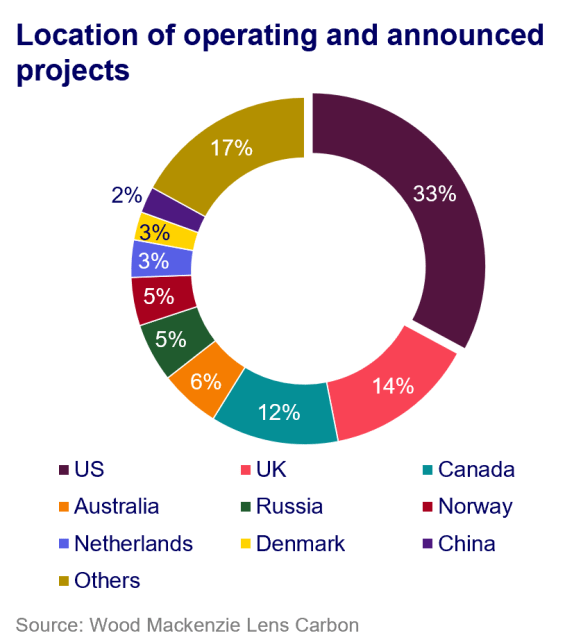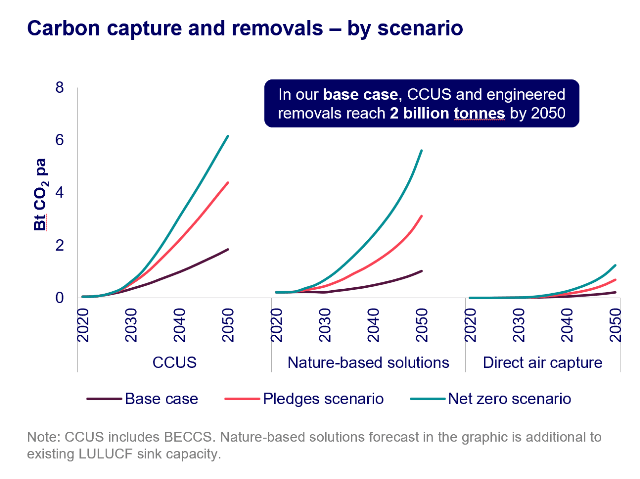In a crucial call for action, Mhairidh Evans, head of CCUS research at Wood Mackenzie, emphasized the pressing need to ramp up carbon capture efforts to reach the ambitious target of 7 billion tons per annum (Btpa) by 2050. Achieving this milestone is critical for meeting net-zero goals and curbing global warming to 1.5 degrees Celsius, a goal set to avert the most severe impacts of climate change.
Evans, speaking at Wood Mackenzie’s Carbon Capture, Utilization, and Storage Conference in Houston, highlighted that relying solely on energy efficiencies, renewables, and alternative fuels would fall short in achieving net-zero emissions by the stipulated deadline. Massive carbon capture from industries and the power sector is essential to offset emissions in areas where green electrification or alternative technologies face limitations.
Presently, the trajectory is on course to achieve a baseline scenario of capturing and removing 2 Btpa of CO2 by 2050, aligning with a 2.5-degree global warming scenario. However, to reach net-zero emissions by 2050 in a 1.5-degree compliant scenario, a significant scale-up to 7 Btpa is imperative.
Wood Mackenzie is actively monitoring global CCUS plans, which currently total 1,400 Mt CO2 per annum, encompassing all project phases from capture to transport and storage. The United States leads this initiative, accounting for 33 percent of all CCUS projects globally.

The US market has distinguished itself as a global leader in many aspects, particularly with substantial support for decarbonization through initiatives such as the Inflation Reduction Act’s 45Q tax credit. Furthermore, the Infrastructure Investment and Jobs Act provides essential backing for companies aiming to develop the infrastructure value chain for CO2 transport and storage. Leveraging extensive geological carbon storage resources, the US stands as an attractive market for launching CCUS businesses due to its oil and gas expertise.
However, despite the promising prospects for growth, governments and developers face significant challenges in scaling up the CCUS industry. Cost remains a significant barrier, with the 45Q tax credit falling short of covering the entire carbon capture cost for every project.
Wood Mackenzie anticipates a potential cost reduction of up to 30 percent within this decade. Yet, the availability of the 45Q tax credit for projects commencing construction as late as 2033 might incentivize some companies to delay commitments until costs decrease. This delay could significantly impact project timelines, underscoring the urgency required to combat climate change effectively.

